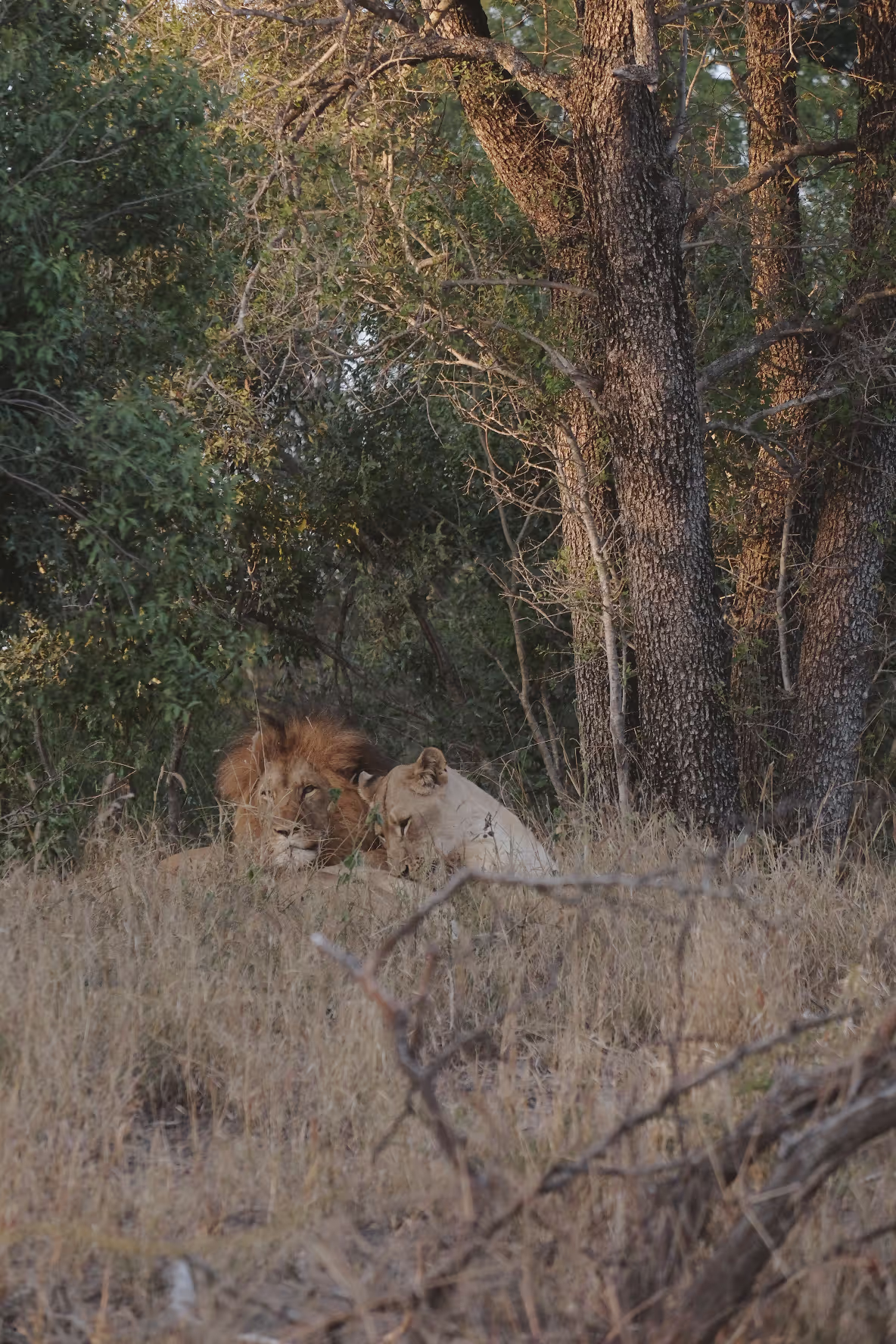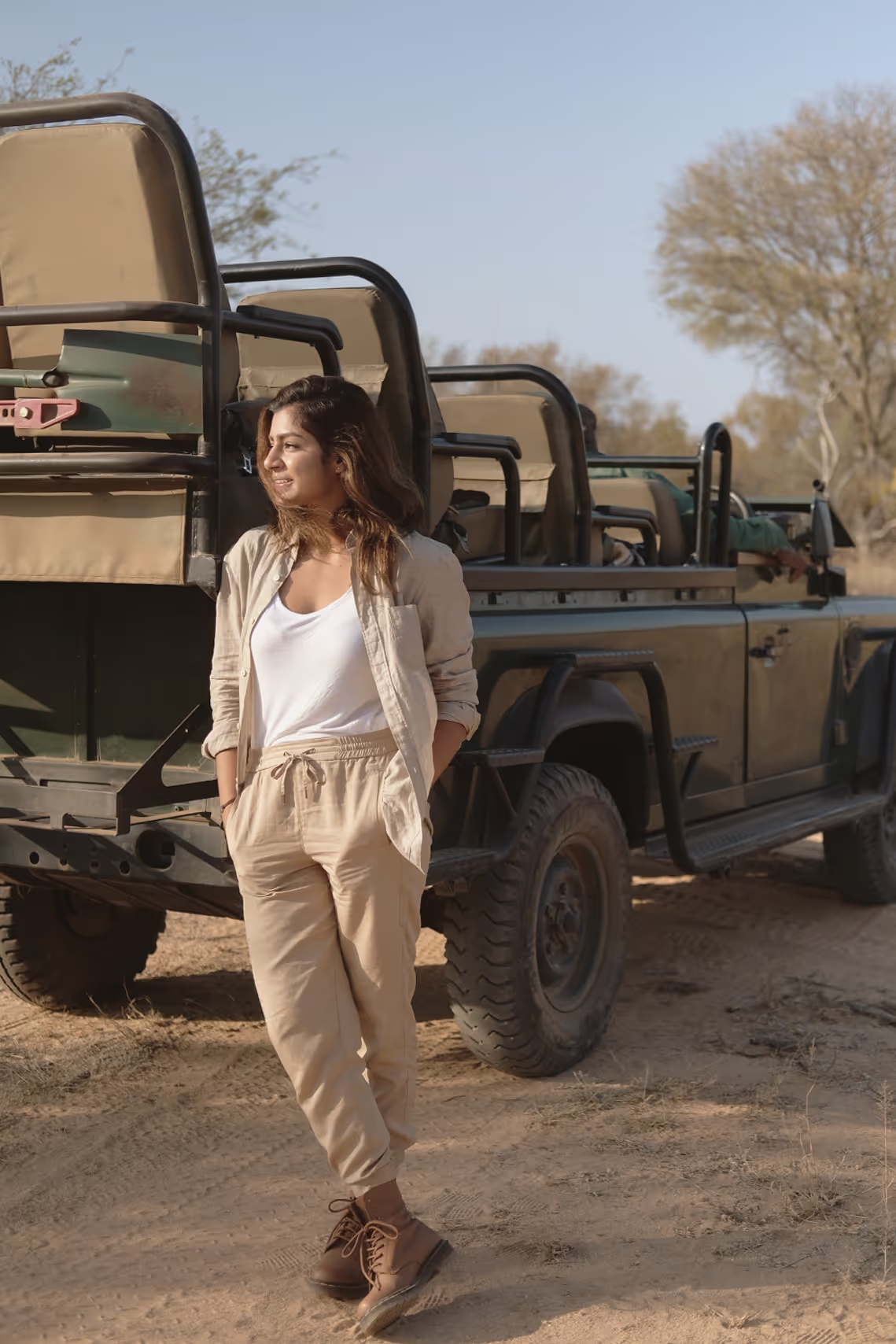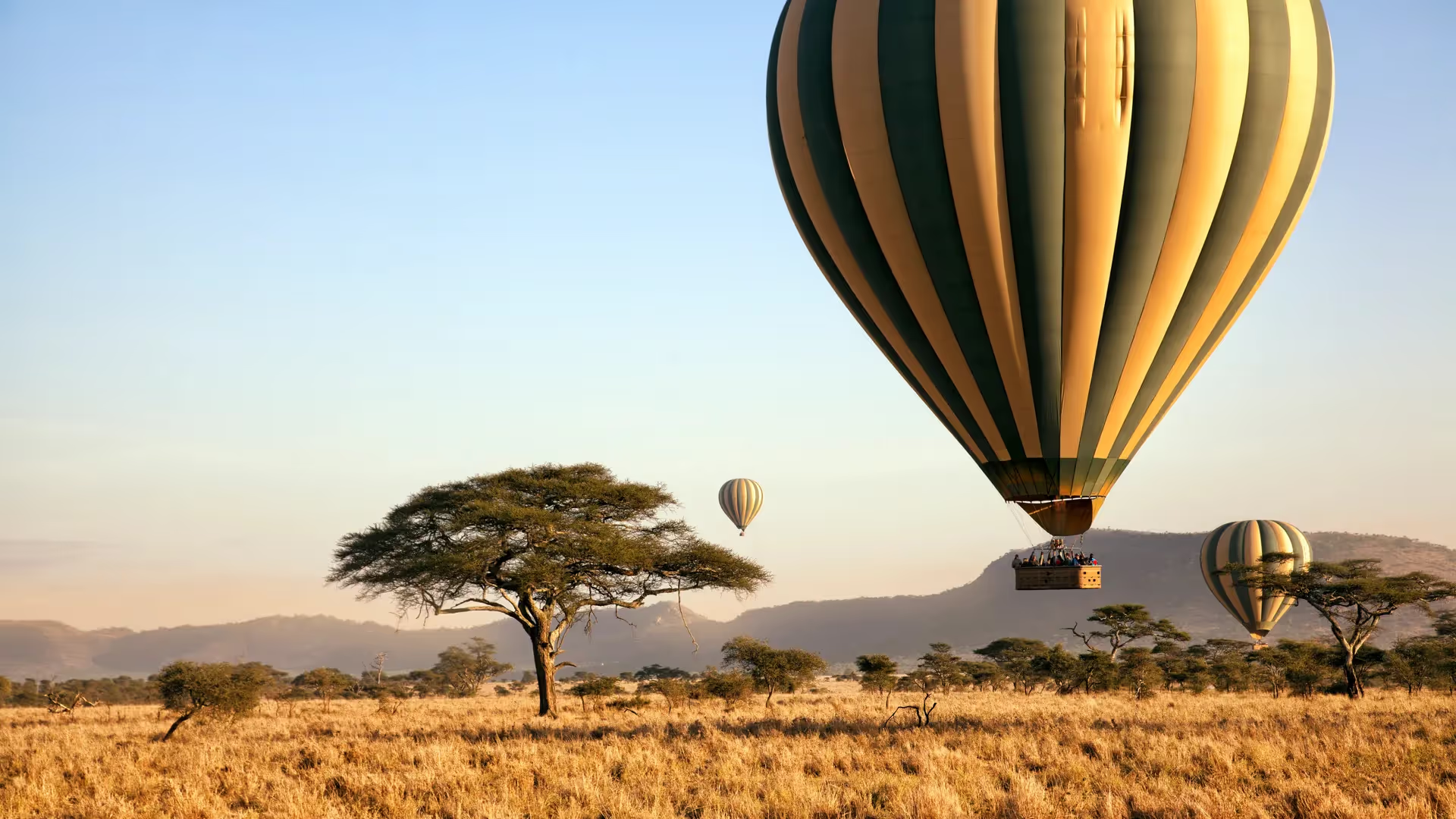The unspoken truths from the African bush
After countless mornings watching the sun rise over the Serengeti, I've learned something most travelers never hear: there's a whole conversation happening that you're not part of.
Your guide knows things—intimate details about the bush, unwritten rules of the wild, and honest truths about what makes a safari extraordinary versus just another expensive game drive. But they're polite. They're professional. And sometimes, they hold back the insights that could transform your entire experience.
Here's what's really happening on your safari.
The 4:30 AM Secret Your Guide Lives By
While you're still in your tent, your guide has been awake for an hour. They're not just checking the vehicle. They're listening.
The bush talks if you know its language. Bird alarm calls indicate where predators moved during the night. Fresh tracks reveal whether the leopard your group wants to see is still around. The absence of baboon chatter might signal that something big is happening.
What they wish they could tell you: That "lucky" leopard sighting? Your guide orchestrated it through signs you never noticed.
Practical tip: When your guide suddenly changes direction or asks for silence, don't question it. They're following invisible breadcrumbs. Also, ask them to explain what they're hearing or seeing. Most guides love teaching when you show genuine interest.
Pack accordingly: Bring quality binoculars (8x42 is ideal), a camera with good low-light performance, and layers for temperature changes. Keep your gear organized in a small daypack so you can grab what you need quickly.

Why Your Guide Cringes When You Say "Big Five"
The Big Five were never about spectacular animals. They were the most dangerous to hunt. Colonial hunters coined the term based on what was most likely to kill them.
Your guide grew up here. They have relationships with individual elephants, know specific lion pride territories, and can identify birds by flight patterns. Reducing Africa's wildlife to a checklist feels limiting.
What they wish they could tell you: That dung beetle rolling elephant dung has a more fascinating story than your tenth lion sighting. That secretary bird performing its snake-killing dance is rarer than any rhino.
Practical approach: Instead of "Did we see the Big Five?" ask "What animal are you excited to show me today?" You'll discover creatures you never knew existed and your guide will appreciate the genuine curiosity.
Reality check: The Big Five obsession can make you miss incredible moments. Some of the most memorable sightings are chameleons changing color, weaver birds building nests, or the intricate social dynamics of a baboon troop.
The Patience Problem That Ruins Safaris
There's a moment when guests get restless. You've been at a waterhole for 45 minutes. Nothing's happening. Phones come out.
Your guide is internally screaming.
They know from experience and generational knowledge that something extraordinary is about to unfold. Wildlife doesn't operate on human schedules.
What they wish they could tell you: The longer you wait, the better the sighting. That leopard emerging after an hour of patience will show behaviors you'd never see during a drive-by encounter.
Practical strategy: When your guide suggests waiting, commit fully. Use this time productively:
- Study animal behavior through binoculars
- Ask your guide about tracks, scat, or vegetation
- Learn bird identification
- Practice photography settings
Pack for waiting: Comfortable cushions, water bottles, snacks, and a field guide. Make the wait part of the experience, not dead time.
The Tipping Reality No One Discusses
Your guide makes most of their annual income during safari season. They support extended families and cover the costs of children's education. But they'll never tell you this directly.
The recommended $20-50 per day per person? That's baseline. A good guide who knows where chameleons hide, can mimic bird calls, and shares stories that make you fall in love with the bush is worth more.
What they wish they could tell you: Generous tips aren't just appreciated—they're transformative. It's often the difference between their child attending school or not.
Practical guidelines:
- $20-30/day per person for standard service
- $40-60/day per person for exceptional guides
- Cash in USD or local currency
- Tip at the end of your safari
- Consider asking what their family/community specifically needs
Beyond money: Bring school supplies, quality gear they can use (headlamps, field guides), or ask about supporting local conservation projects.
Night Drives: When Guides Come Alive
In private conservancies where night drives are allowed, this is when your guide truly shines. The African bush at night is completely different—more primal, more honest.
Your guide knows exactly where to find nocturnal creatures most tourists never see: aardvarks, honey badgers, hunting leopards, genets, and owls.
What they wish they could tell you: Everything you think you know about African wildlife changes after dark.
Essential night gear:
- Red headlamp (preserves night vision)
- Warm layers (temperature drops fast)
- Camera with good high-ISO performance
- Thermos with hot drinks
- Blanket for chilly open vehicle rides
Behavior tips: Stay quiet, move slowly, and let your guide control the spotlight. Many animals freeze in light, giving you incredible viewing opportunities.
When Your Guide Goes Silent
Your guide will sometimes become very still and focused. They might hold up a hand or reach for their radio.
This isn't dramatic—something significant is happening.
Perhaps they've spotted tracks indicating the presence of wild dogs nearby. Maybe they've heard distress calls signaling active predation. Vultures are circling in a pattern suggesting something extraordinary.
What they wish they could tell you: These quiet moments are when real magic happens.
Your response: Mirror their energy. Whisper if you must speak. Watch their face, not just the landscape. They're translating what the bush is saying.
Learn the signs: Ask your guide to teach you basic tracking: paw print identification, scat analysis, alarm call meanings. It transforms passive observation into active participation.
The Guide's Real Motivation
Despite early mornings and demanding guests, your guide chose this life for one reason: they're ambassadors for something they believe in.
Every person they take into the bush might fall in love with Africa, become a conservation advocate, and understand that this ecosystem needs protection.
What they wish they could tell you: Your safari isn't just about seeing animals—it's about creating advocates for their future.
Meaningful engagement: Ask about conservation challenges, local community involvement, and how tourism helps or hurts. These conversations often become the most impactful part of the trip.
Follow through: Many guides can connect you with legitimate conservation organizations if you want to contribute beyond your visit.
Practical Realities Most Guides Won't Mention
Weather can ruin plans: Even with the perfect itinerary, weather can still destroy it. Flexibility isn't just nice. It's essential. Rain can make certain areas inaccessible, while drought concentrates animals around remaining water sources.
Vehicle positioning matters: Sit behind your guide for best photo angles and quickest exit if needed. Avoid the back row if you're prone to motion sickness on rough roads.
Bathroom reality: There often aren't facilities in the bush. Bring tissues, hand sanitizer, and a small trowel. Your guide knows the protocol—just ask.
Photography pressure: Don't sacrifice the moment for the shot. Some guides feel pressured to position vehicles perfectly for photos, which can potentially disturb wildlife. Be present first, photographer second.
Diet restrictions: Please inform your guide about any food allergies or preferences before departure. Bush lunches have limited options, and some camps can't accommodate last-minute dietary changes.

What Actually Makes Guides Great
The best guides don't just show you animals. They adapt to your interests and energy levels.
They notice when you're struggling with early mornings and adjust accordingly. They remember you love birds, and suddenly every drive includes incredible birding opportunities. They sense when you need quiet versus educational commentary.
How to work with your guide:
- Communicate your interests upfront
- Be honest about physical limitations
- Ask questions. Guides love sharing knowledge
- Respect their expertise and local knowledge
- Give feedback during the trip, not just at the end
The Bottom Line
Your safari guide isn't just a driver or walking encyclopedia. They're your translator for an environment most people will never understand, your safety net in unpredictable situations, and often your bridge to experiences that can't be manufactured.
They're not just showing you Africa. They're sharing something they love with someone they hope will love it too.
Planning your safari? Choose guides with local knowledge, conservation awareness, and genuine passion over those with just technical certifications. Ask tour operators about their guides' backgrounds, training, and community involvement.
The right guide doesn't just make your safari better. They make it unforgettable for all the right reasons.
Ready to experience Africa through authentic local expertise? Check out our founder’s vlog: How traveling to Tanzania changed me | Life in Progress Travel Series. She shows what happens when you let the continent transform you.



.avif)


